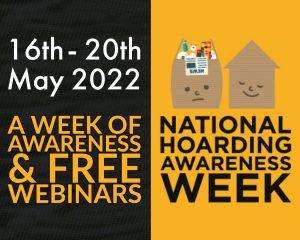Pandemic has produced a "perfect storm" for hoarding, warn experts

Published by Professional Social Work magazine, 17 May, 2022
The trauma of the pandemic is likely to have seen an increase in people hoarding, a campaign group has warned.
Clouds End said the last two years had created a “perfect storm” for a surge, with the reduction in support and home visits meaning much of it remains hiding.
The warning comes during UK Hoarding Awareness Week which began on Monday, 16 May.
Heather Matuozzo, director of Clouds End, said: “Hoarding has been on the increase since Covid.
“Most people who hoard are trauma sufferers. They are anxious people and we found the pandemic was very scary to people.
“That was a perfect storm – the world started hoarding toilet paper initially. What we have seen is a triple surge – there were a lot of people who haven’t been discovered. There were some who had been discovered before the pandemic and had help but returned back because people weren’t visiting and their support networks disappeared.
“Also a lot of people went into panic mode so you have this third new wave of people hoarding because of the pandemic.”
Hoarding has been recognised as a mental disorder since 2013. In 2018, the World Health Organisation acknowledged it as a medical condition.
It can caused by bereavement, or other life events that cause emotional trauma such as redundancy. In some people it is due to a lack of being taught how to organise as a child and feelings of being overwhelmed.
Between two and five per cent of the population are estimated to be affected by hoarding, which equates to around 1.2 million people in the UK. Mental health experts have warned of increased hoarding tendencies during the Covid-19 pandemic, including people buying items they do not need online.
UK Hoarding Awareness Week seeks to raise awareness of the condition. In particular, it is urging landlords not to evict a person who hoards but help them get support.
The campaign is being aimed at social housing landlords, adult social care services, local authority housing providers, emergency services and social workers.
Matuozzo added: “The big issue with any support worker is their reaction to the hoarding. Professionals can be traumatised in a mini way by going into a hoarding home. They want the stuff to go because they are in fight or flight.
“Once people get that they can understand and be useful rather than feel in the grip of something they don’t understand."
#HAW2022 #SupportiveInterventionNotEviction #PartnershipWorking
